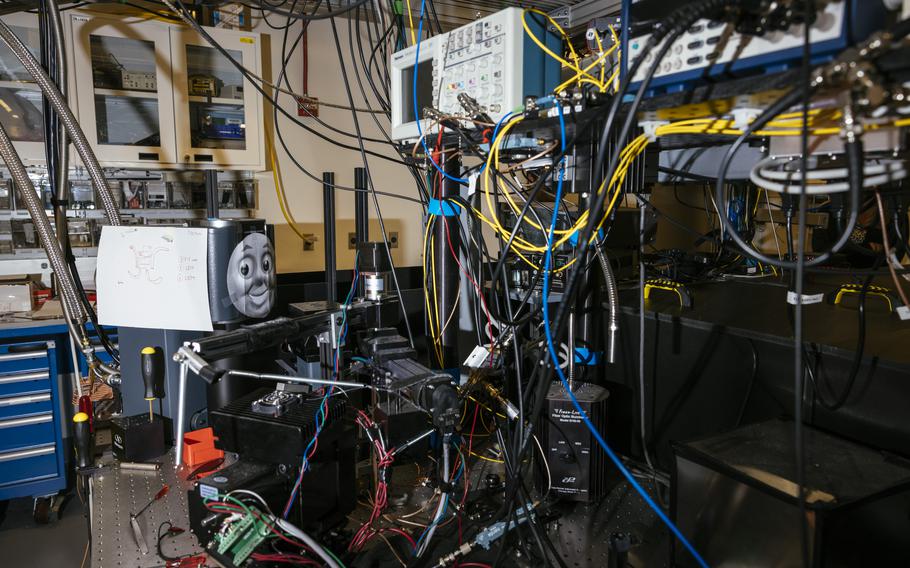Chicago scientists are testing an unhackable quantum internet in their basement closet

A picture of Thomas the Tank Engine is displayed on a piece of equipment in the quantum computing lab at the University of Chicago’s Eckhardt Research Center on Oct. 4, 2022. (Taylor Glascock/for The Washington Post)
CHICAGO — The secret to a more secure and powerful internet — one potentially impossible to hack — might be residing in a basement closet seemingly suited for brooms and mops.
The 3-foot-wide cubby, in the bowels of a University of Chicago laboratory, contains a slim rack of hardware discreetly firing quantum particles into a fiber-optic network. The goal: to use nature’s smallest objects to share information under encryption that cannot be broken — and eventually to connect a network of quantum computers capable of herculean calculations.
The modest trappings of Equipment Closet LL211A belie the importance of a project at the forefront of one of the world’s hottest technology competitions. The United States, China and others are vying to harness the bizarre properties of quantum particles to process information in powerful new ways — technology that could confer major economic and national-security benefits to the countries that dominate it.
Quantum research is so important to the future of the internet that it is drawing new federal funding, including from the recently adopted Chips and Science Act. That’s because, if it pans out, the quantum internet could safeguard financial transactions and health care data, prevent identity theft and stop hostile state hackers in their tracks.
Just this past week, three physicists shared the Nobel Prize for quantum research that helped pave the way for this future internet.
Quantum research still has plenty of obstacles to overcome before it reaches widespread use. But banks, health-care companies and others are starting to run experiments on the quantum internet. Some industries are also tinkering with early stage quantum computers to see whether they might eventually crack problems that current computers can’t, such…


